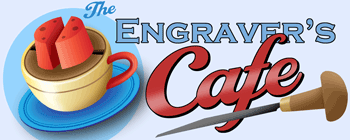Brian Marshall
~ Elite 1000 Member ~
http://www.latimes.com/business/technology/la-fi-tn-lexmark-supreme-court-20170531-story.html
And what do y'all think about this line - as applied to our use of our specific tools & materials in our work?
<"These issues fit into a broader fight over what some experts call the "right to tinker." The thinking goes: If you buy something, you should be free to do whatever you want with it — modify it, sell it, even destroy it.">
Or this one:
<"It also affects people building new innovations in their garage out of off-the-shelf products. In short, what you can do with the stuff you buy has real ramifications for Americans' way of life.">
Brian
And what do y'all think about this line - as applied to our use of our specific tools & materials in our work?
<"These issues fit into a broader fight over what some experts call the "right to tinker." The thinking goes: If you buy something, you should be free to do whatever you want with it — modify it, sell it, even destroy it.">
Or this one:
<"It also affects people building new innovations in their garage out of off-the-shelf products. In short, what you can do with the stuff you buy has real ramifications for Americans' way of life.">
Brian
Last edited:





